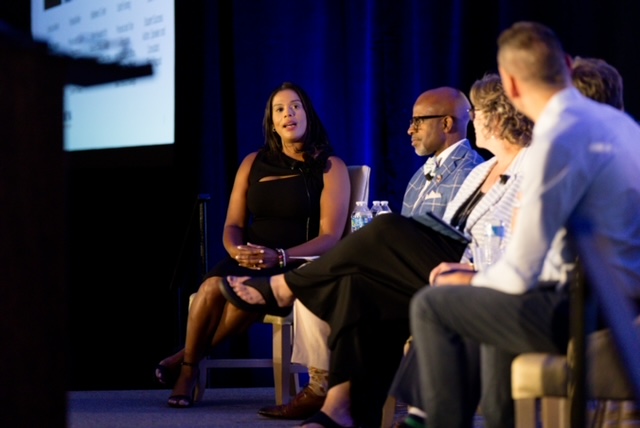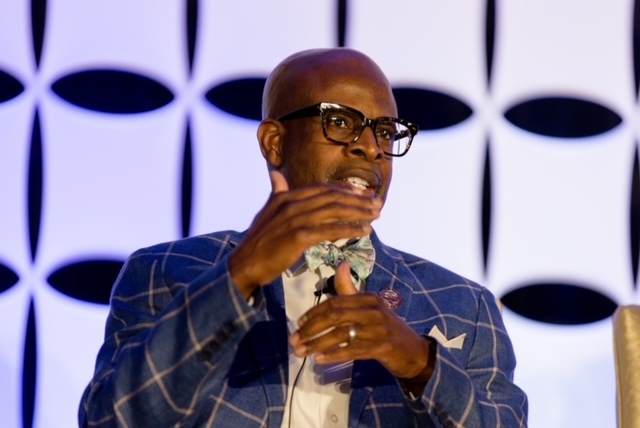
Two members of University of Maryland Eastern Shore president Heidi M. Anderson’s cabinet took center stage in Denver over the summer to discuss how collaborative partnerships positively affect student success.
Dr. Rondall Allen, provost and vice president for Academic Affairs, and Latoya Jenkins, vice president of Enrollment Management and Student Experience, participated in a panel discussion at the American Association of State Colleges and Universities (AASCU) Summer Meeting for Academic and Student Affairs Leaders in July. The panel focused on building bridges between academic affairs and student affairs.
“Part of what makes our team work in building those bridges is that we are open to feedback and using data to help support our decisions,” Jenkins said. “Usually, when you have two people who are at different divisions, there are different focuses and different objectives. But Dr. Allen and I have found a way to ensure that if the students are going to succeed, we need to do our best to get our institution to that point.”
During the forum, Allen and Jenkins addressed how the two divisions at UMES have worked together to help create positive student outcomes in student recruitment and retention.
The opportunity to address the AASCU audience was born from another speaking engagement Jenkins had at a Higher Endeavor Ecosystem meeting last spring in Chicago.
As part of the student retention initiative, a task force was established to help implement new policies to decrease academic dismissals. Through the group’s work, the number of students academically dismissed was reduced by 95 percent.

Allen said changing the policy language offered more opportunities for UMES students struggling with academics and two additional buffers before dismissal.
In the past, he said students placed on probation would have just one semester to rebound academically or end up being dismissed.
“Now we’ve implemented two more categories – warning and jeopardy – before dismissal is even reached,” Allen said. “We want to make sure that as a first-time student, we’re supporting them in their journey.”
Jenkins added that along with the redefined academic dismissal policies, students with a GPA below 2.5 are also given help from peers, mentors, and faculty to get them back on track.
“That’s something that helps with student belonging,” she said. “We noticed you might need help and we’re giving you a safe space to work with our team and your peers who also may be in need. It’s through that approach that our teams are able to work together and support students.”
With the initiatives showing progress, including the fourth consecutive year of growing new student admissions, both Allen and Jenkins are confident that working together to meet student needs is pivotal for UMES to continue to thrive.
“One of the points stressed during the presentation was that these two teams have to work together,” Allen said. “The right hand has to know what the left is doing, and that’s what’s worked for us.”
Added Jenkins: “We wanted to make sure that we gave our students opportunities to work with as many departments as possible in order to complete their educational journeys. In order to do that, it starts with communication between Dr. Allen and I and having a shared vision for success.”

